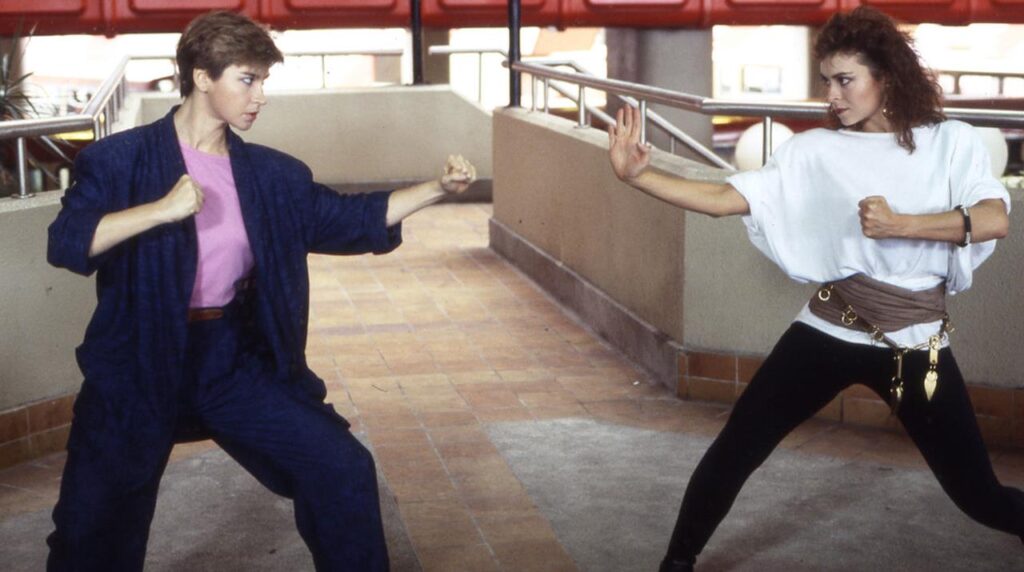
The new home video release of Righting Wrongs (1986) from Vinegar Syndrome is an exceptional package. Between this release and the deluxe editions of Thriller: A Cruel Picture (1973) and Flesh For Frankenstein (1973) it’s clear that this boutique label is going to consistently outdo the bigger distributors like Criterion Collection in terms of exhaustive special features, top notch restorations, and durable packaging that also happens to be gorgeous. Their three disc release of Righting Wrongs comes with three different versions of the film (Hong Kong, China, and U.S. edits) as well as the feature length documentary The Best Of Martial Arts Films (1990). The version of Righting Wrongs released in Hong Kong is the closest to director Corey Yuen’s intent so that will be the version of the film discussed here.
The plot to Righting Wrongs is fairly simple. Prosecuting attorney Jason Ha (Yuen Biao) is fed up with the corruption in Hong Kong’s legal system and takes to the streets as a vigilante. In response to Ha’s one man war on organized crime the Hong Kong police dispatch Senior Inspector Cindy See (Cynthia Rothrock) and her oafish partner “Bad Egg” (Corey Yuen) to catch Ha. But as it becomes clear that Ha is in the right and that Superintendant Wong (Melvin Wong) has his own vile agenda, See and Ha must team-up to fight the bad guys and right the wrongs.
The fight choreography that Yuen and Biao did for Righting Wrongs is stupendous. Every scene of battle is electric with crazy stunts and inventiveness. Yuen’s direction in these sequences optimize the energy of the choreography with quick, rapid cuts that move the camera and the viewer through the space from a variety of angles. Unlike the martial arts films of Jackie Chan, Yuen does not prioritize revealing the performer’s prowess in sustained takes. Instead Yuen employs every means at his disposal to make his audience feel that they are right there in the thick of the action.
While the fight choreography is cutting edge, Righting Wrongs adheres to most of the narrative conventions of the cop movie. See and Ha’s relationships with other characters are either non-existent or merely superficial. Like Harry Callahan or Axel Foley the leads in Righting Wrongs are loners because they have chosen the hero’s path. Yuen reinforces this notion by juxtaposing their lonely quest for justice with the intense familial relationships in the lives of the victims they endeavor to protect. It’s the massacre of a witness’ family at the start of the film that prompts Ha to become a vigilante and it’s the murder of an informant’s grandfather that inspires See to take up Ha’s cause.
In comparison to Yuen’s previous film with Rothrock, Yes, Madam! (1985), the actress is given much more to do dramatically speaking in Righting Wrongs. However, the general direction of Righting Wrongs leans more towards the style popularized by Bruce Lee which is essentially a series of set pieces designed to showcase the martial artist’s talents. Yuen’s use of editing may be fast paced and modern, but the structure of the film is still as a series of set pieces. In addition to playing Ha, Biao also produced the film which he saw as a chance to strike out on his own as a serious action movie star. Biao never became the next Bruce Lee, Jackie Chan or Jet Li but he did make some pretty rad movies.
